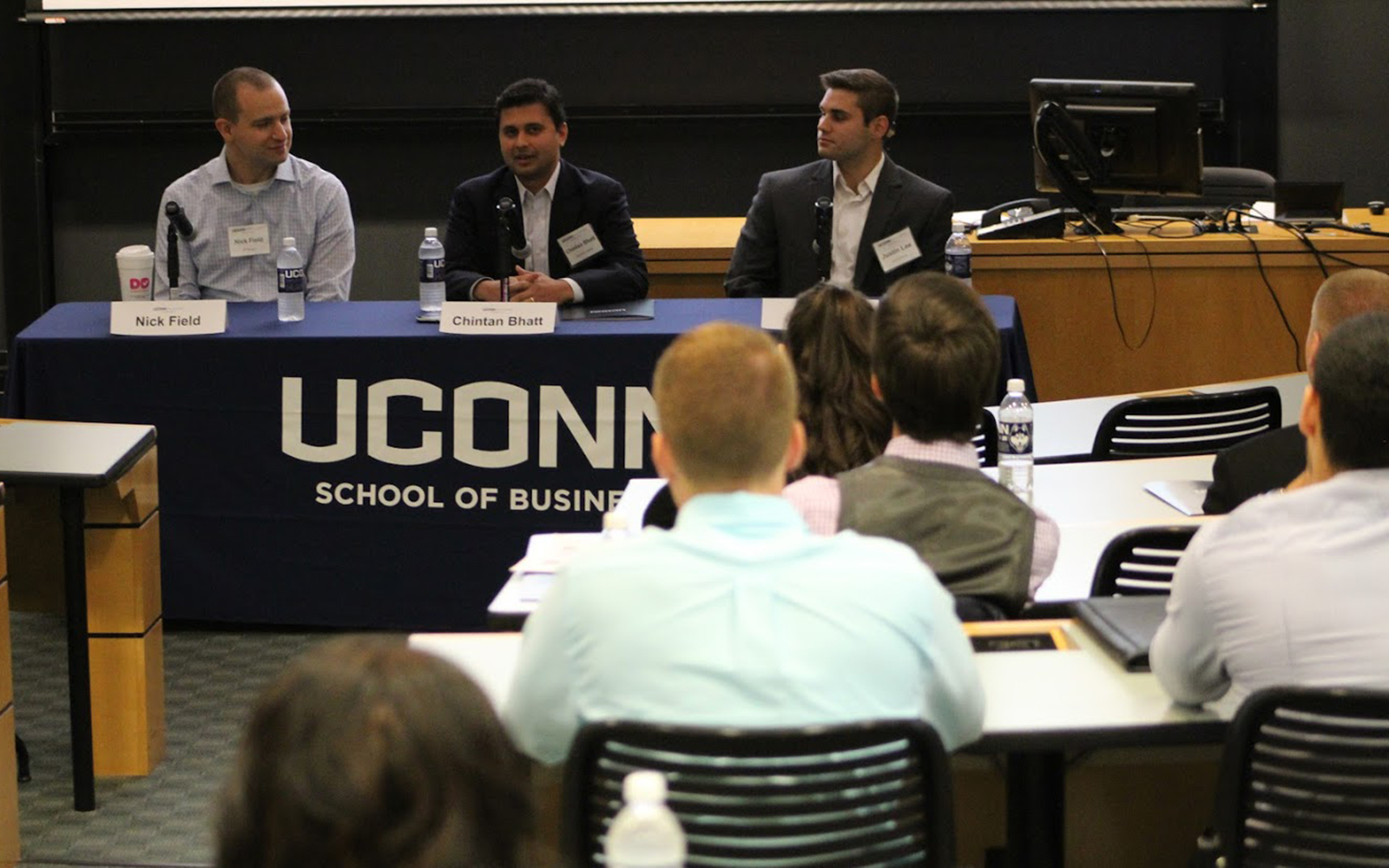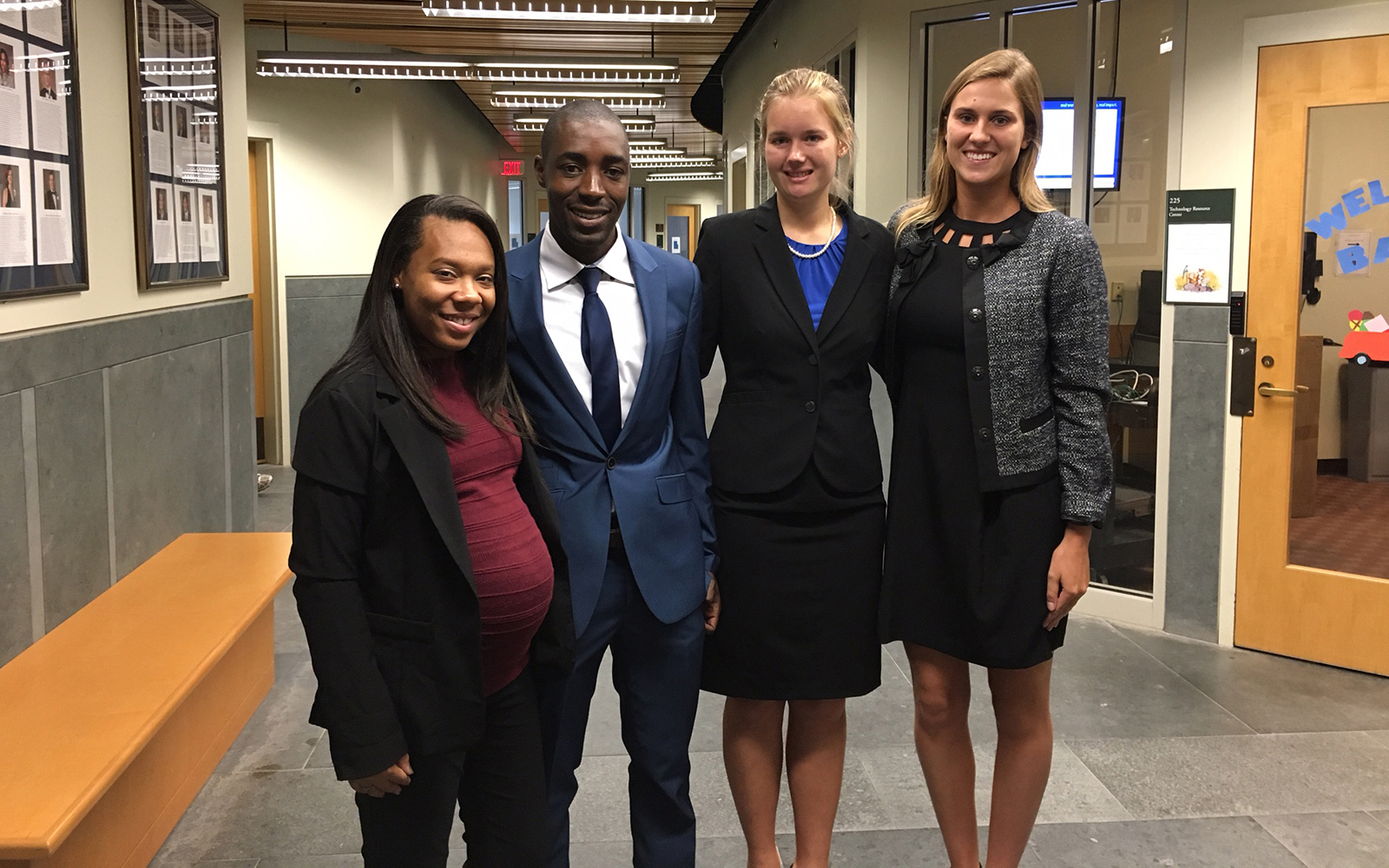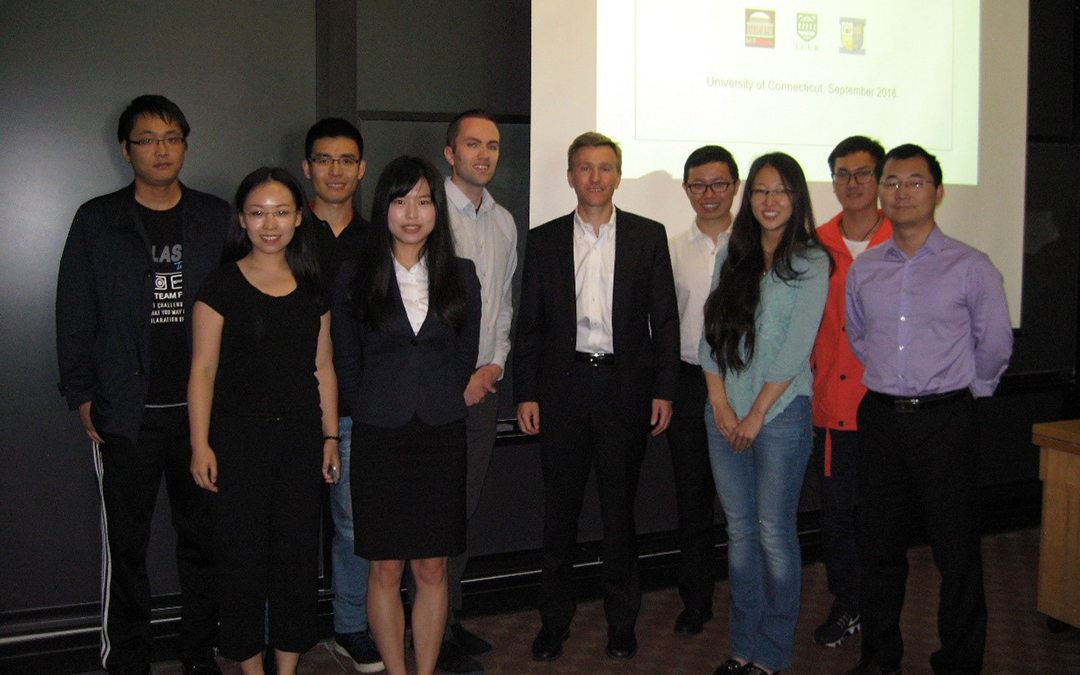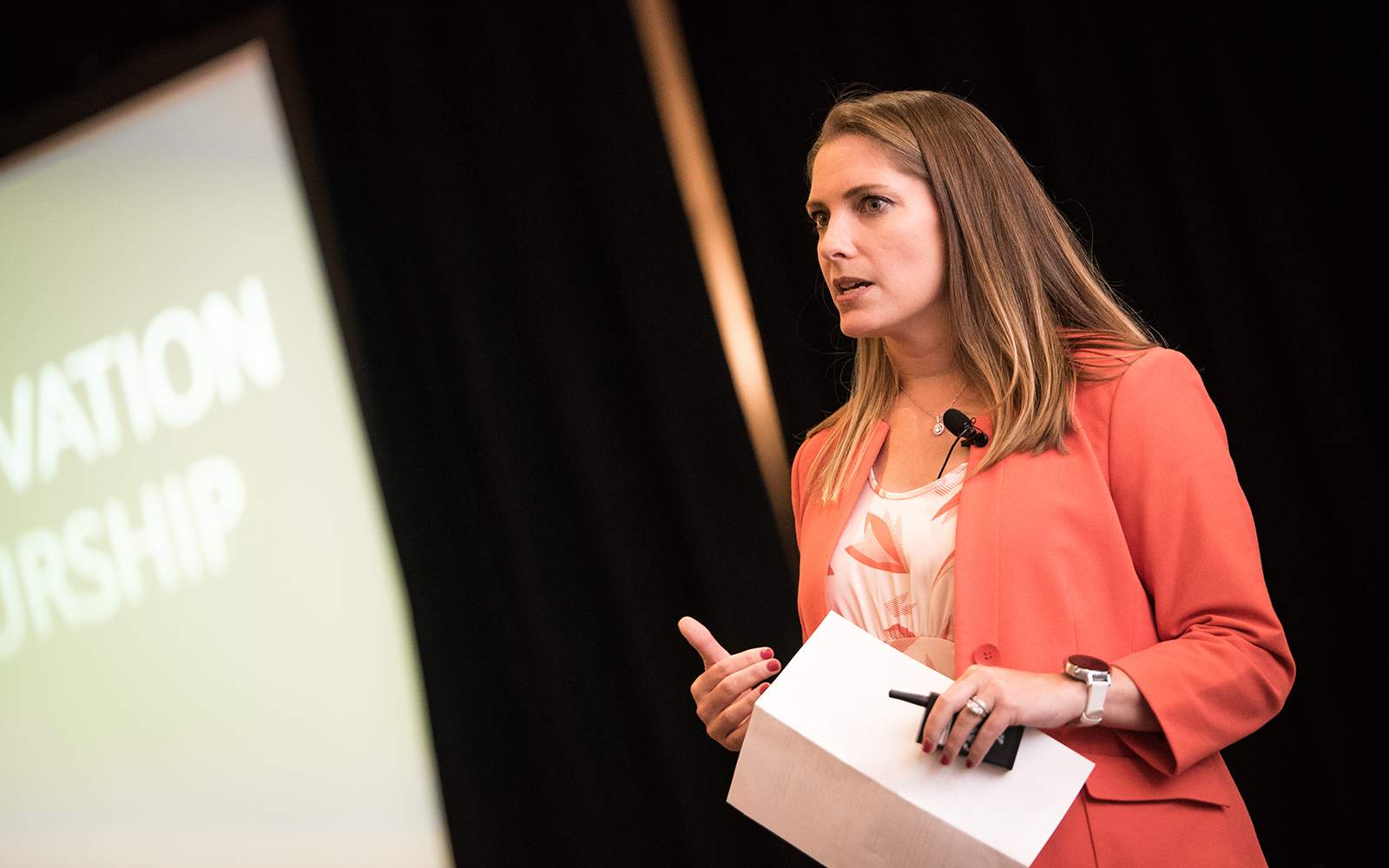At the UConn School of Business, we pursue research that is not only interesting and enlightening, but offers a fresh perspective or discovery that can be immediately applied to the business world. The best research benefits not only the academic community, but also…
Finance
Exploring All Avenues at UConn Finance Conference

Experts Encourage UConn Finance Students To Seek Jobs in Most Prestigious, Demanding Sectors
Careers in investments, asset management, banking and prestigious Wall Street opportunities were the focus of the inaugural Finance Conference at the School of Business.
“The conference continues the School of Business efforts to make a greater push to place students in more prestigious and demanding areas of the financial sector,” said Professor Larry Gramling, associate dean for undergraduate programs. Continue Reading
Op-Ed: Student Debt: Problem or Crisis?

Reforms, Not Revolution, May be Solution to College Debt Crunch
Crisis is the operative word that has focused massive attention on student debt.
The press has stoked the fires by highlighting the growing size of total student debt and featuring poignant stories of out-of-work graduates with massive debt burdens. Continue Reading
Brainstorming, Friendships & Mansions

CIBER Challenge Gives Students an Advantage in the Workplace
Career advice from GE executives, a scavenger hunt at Newport, R.I.’s famous mansions, a brain-teaser on global transportation, and a chance to meet business students from around the globe highlighted the 2016 UConn CIBER Case Challenge. Continue Reading
A Winning Team

UConn Finance Students Victorious at Highly Competitive Cornell Stock Pitch Contest
A team of UConn undergraduate finance students took third place in the highly prestigious Cornell Stock Pitch Challenge in Boston, going toe-to-toe with teams from Harvard, Columbia, Duke, Notre Dame and Amherst.
“We are very proud of our students’ success in the face of extremely tough competition,” said finance professor and department head Chinmoy Ghosh. “Their success confirms what we already know, that our students are able to compete and win against anyone.” Continue Reading
Princeton Review Ranks UConn School of Business Among the Best in the Nation
The UConn School of Business is among the top business schools in the country at which to earn an MBA, according to The Princeton Review’s 2017 edition of “The Best 294 Business Schools.” “We recommend UConn as one of the best to earn an MBA,” said Robert Franek, Princeton Review’s senior VP-Publisher. “We chose the 294 schools in this book based on our high regard for their academics and our assessment of institutional data we collect from the schools. We also solicited and greatly respect the opinions of 25,000 students attending these schools who reported on their experiences.”
The publication identified UConn as a great place to develop real-world credentials, noted its high regard in the areas of finance and risk analytics, and praised its smaller class sizes, which make it easy to build relationships with both professors and classmates.
“I have had interviews with Covidien, Pitney Bowes, General Electric and Travelers Insurance, and I know UConn has a strong presence when I see that I am competing in the second round interviews with students from Yale and Cornell,” one UConn MBA student wrote in a review.
Opening Ph.D. Student Speaker Series

This Fall, I had the pleasure of coordinating the Finance Ph.D. Student Speaker Series. The purpose of the Speaker Series is to enhance the research culture of the School of Business by attracting speakers whose research is particularly relevant to doctoral students. Each year doctoral students of the five academic departments make the decision of whom to invite, decide the professor’s agenda, and otherwise facilitate and coordinate the professor’s visit. Continue Reading
A Little White Lie – or Worse?

UConn Researcher Discovers that Retail Execs Downplay, Mislead Outlook in Reports to Stockholders
Many CEOs from major U.S. retailers tend to soften, possibly even distort, their company’s financial standings and offer stakeholders pessimistic predictions about the future, even when their companies are thriving.Continue Reading
What’s Normal?
U.S. Economic Expert Shares Vast Knowledge With Our Graduate Students
Economist Cletus C. Coughlin, senior vice president and policy adviser to the president of the Federal Reserve Bank of St. Louis, was a guest lecturer in the School of Business’ graduate program on Sept. 27.
Coughlin presented his knowledge on “The U.S. Economy: What’s Normal?” in Professor Jeffrey Cohen’s “FNCE 5533 – Real Estate Capital Markets” class at the Graduate Business Learning Center in Hartford.

In his 30 years at the Federal Reserve, Coughlin’s responsibilities have focused on advising senior officials on monetary policy, as well as on academic research on the topics of international trade, urban, regional, and real estate economics. He has been with the Federal Reserve since 1987.
Coughlin and Cohen have been collaborating on research for the past 15 years, having published on a wide range of topics, including property taxation, airport infrastructure issues, housing price impacts of airport noise, and the boom and bust of U.S. housing prices.
Most recently, they co-authored an article with a third researcher on foreclosures, which was published in September 2016 in the Federal Reserve Bank of St. Louis Review. Read their article here.
‘You are an Entrepreneur!’

UConn’s New Xcite Conference Draws 200+ Women; Strives to Increase Connecticut’s Women Business Leaders
It was a simple assignment that YouTube executive Kathryn Friedrich gave to the audience of 200 business women: take a minute and think of an entrepreneur.
“If you’re not thinking of yourself, think again, because you are an entrepreneur,” she said. “Entrepreneurship is a mindset. You don’t have to start your own company to be an entrepreneur. You can start working on it right away!” Continue Reading